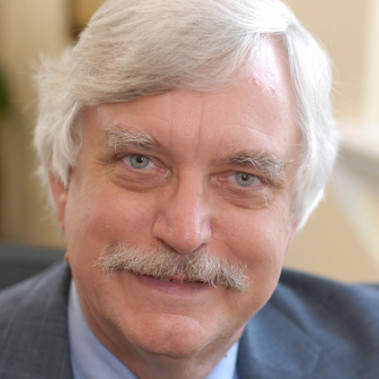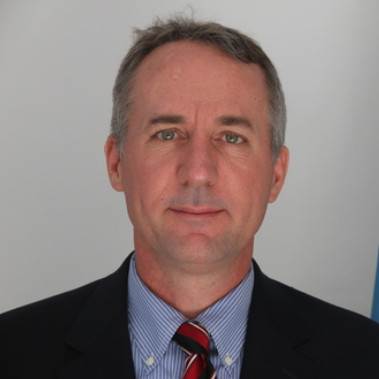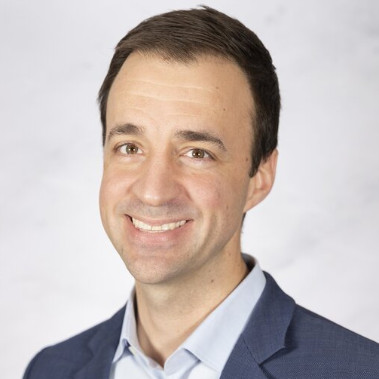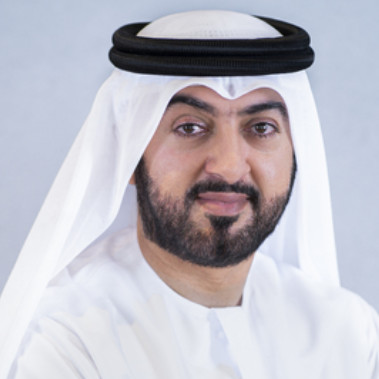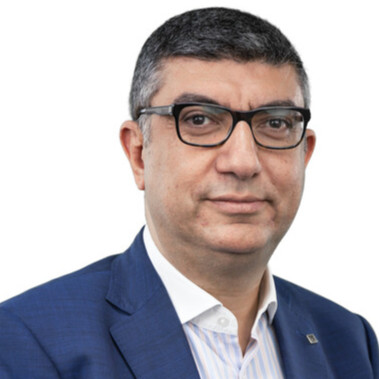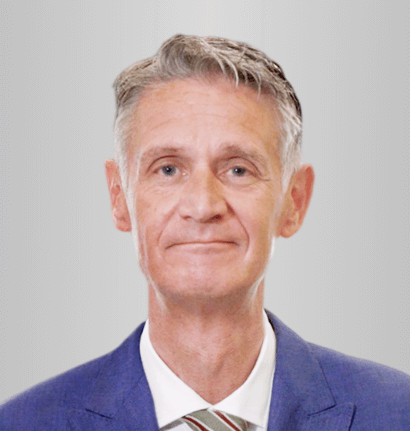المركز الاعلامي المركز الاعلامي
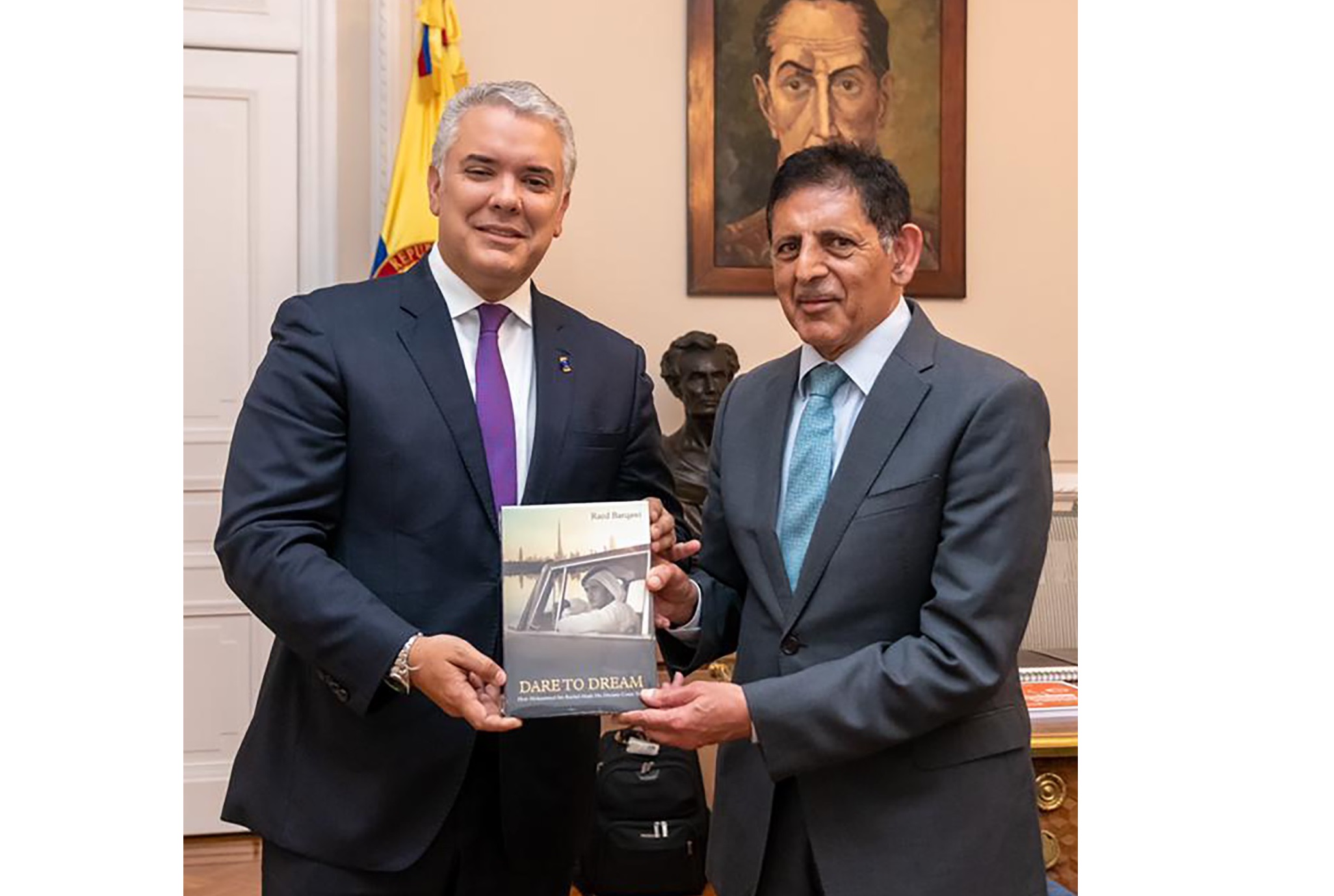
المدرسة الرقمية تفتتح أول مركز تعلم رقمي في كولومبيا
المدرسة الرقمية تفتتح أول مركز تعلم رقمي في كولومبيا
President Ivan Duque Marquez of Colombia met with officials representing the Digital School initiative, a global project led by the Mohammed Bin Rashid Al Maktoum Global Initiatives (MBRGI), as the charitable organisation launched its first Digital Learning Centre in Colombia.
The Centre is part of MBRGI’s effort to benefit over 4,000 students in Colombia with access to world-class online learning resources.
Briefing Marquez on the initiative, the MBRGI team shared how the organisation and the Digital School’s efforts seek to provide students in disadvantaged regions of the world with learning opportunities and promote the education ecosystem in Colombia.
The meeting was held on the sidelines of the Orange Economy Summit held in Medellin, Colombia, an event aiming to stimulate the innovation economy through technology innovation and culture.
The inauguration of the first Colombian digital learning centre took place in the presence of Salem Rashid Al Owais, UAE Ambassador to Colombia. A number of meetings were held with officials in Colombia to support the implementation of digital school programmes and initiatives, consolidating the results achieved in supporting the education and technology sector and development of digital learning in Colombia.
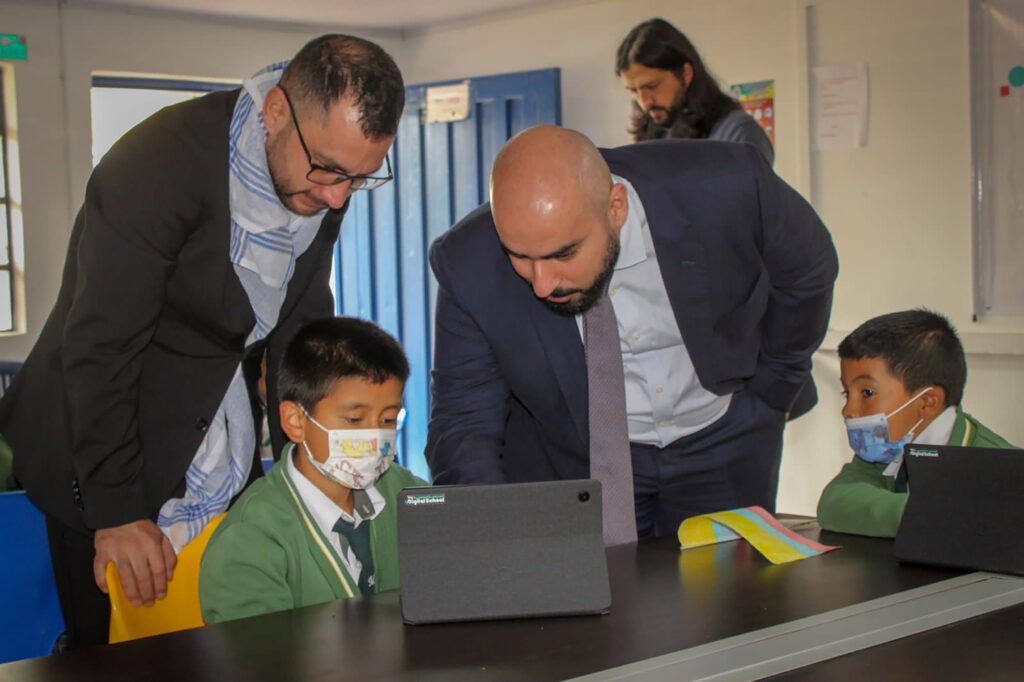
Omar Sultan Al Olama, Minister of State for Artificial Intelligence, Digital Economy and Remote Work Applications and Chairman of the Board of Directors of The Digital School, stated that the UAE adopts modern technology and disruptive digital solutions, offering learning opportunities for students worldwide through its global initiative “Digital School,” which enhances developments efforts across the world.
Al Olama added that the inauguration of the centre provides new opportunities in education for students through innovative practices, intelligent and flexible technologies to empower them and enhance their readiness for the future. This helps support efforts aiming to keep pace with digital transformation in Colombia and explore new opportunities that contribute to positive change across various sectors, which are vital for improving people’s lives and building a better future for future generations.
During the Digital School delegation’s visit to Colombia to follow up on the implementation of programmes and initiatives and discuss the means to promote cooperation in digital education in Columbia, Dr. Waleed Al Ali, Secretary-General and Board Member of the Digital School, met with Tito Crissien, Minister of Science, Technology, and Innovation in Colombia, and discussed ways to provide advanced science and innovation materials to Colombian students through the Digital School.
He also met with the Colombian Minister of Culture Angelica Mayolo, to discuss collaborations in digital education.
A further meeting with Maria del Rosario, Deputy Minister of Communications and Information Technology for Communications Affairs, discussed the implementation of internet access to support Digital School Centres, particularly in rural areas.
The delegation also held a meeting with Juan Carlos Saldarriaga, Mayor of Soacha, to discuss the work of the Digital School in Soacha and the potential for expansion of new sites. Another meeting was held with Juan Pablo, Under-Secretary of the Ministry of Culture at the Municipality of Medellín.
Moreover, the delegation met with Mireille Girard, representative of the United Nations High Commissioner for Refugees (UNHCR) to Colombia. These meetings contributed to strengthening the support provided to the Digital School and its plans for the development of digital learning platforms in Colombia.
Dr. Al Ali said that the Digital School contributes to reducing the challenges faced by Colombian families, helps keeping up with the digital economy and education, and provides integrated educational support to students and teachers by providing them with 21st-century competencies, as well as learning independence to empower them with different digital skills, in cooperation with local and international teams of experts and specialists in educational systems and educational strategies design.
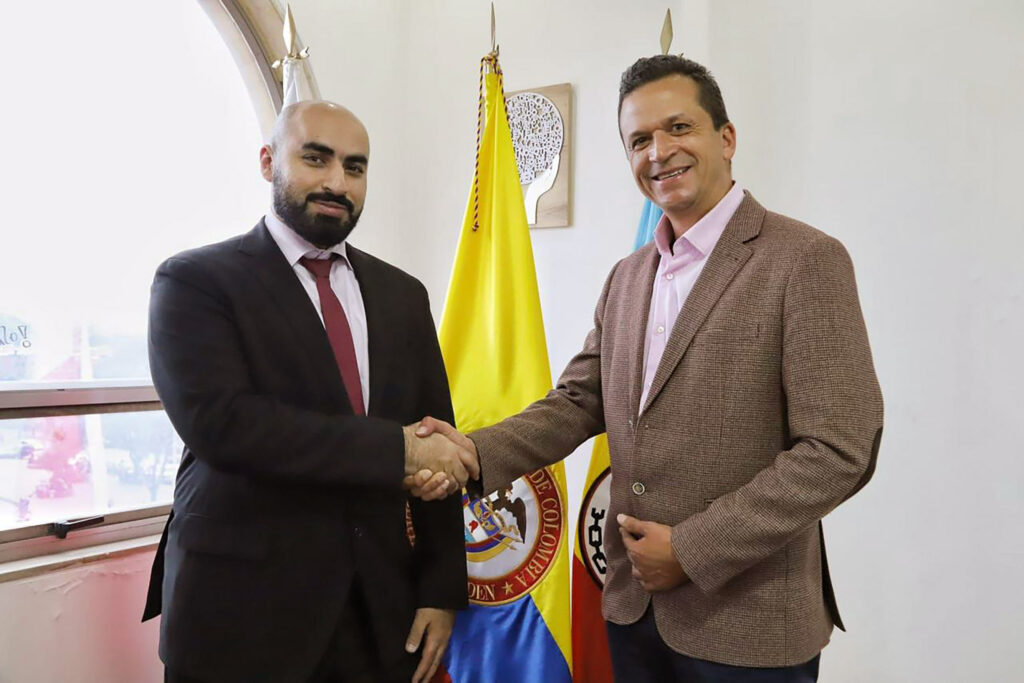
Al Owais, in turn, praised the efforts of the Digital School and the MBRGI in launching such global projects, pointing out that the digital school adopts many types of education based on the needs of the beneficiary countries, in addition to providing certificates recognised by the Ministry of Education in the target country, as per different standards and requirements.
The centre provides students and learners with modern tablet devices, displays, and internet access. A specialised hall has been equipped with the latest smart technologies to help students benefit from the services of the Digital School.
The inauguration ceremony was attended by government and local officials, including Luis Armando Soto, Director of the Department of Cultural Affairs at the Ministry of Foreign Affairs; Jose Maria Leton, Under-Secretary of the Ministry of Education in the Department of Cundinamarca; Jennifer Manuel Seatuba Barbosa, Mayor of Guacheta Municipality; and Rafael Roso, Director of the School of Minya and the School of Ticha.
Since the announcement of the partnership with Colombia, the Digital School has enrolled 4,000 students from 27 public schools, in addition to training 210 teachers on digital teacher competencies within the training programme implemented in cooperation with the Arizona State University. These competencies focus on enhancing 21st-century skills such as learning autonomy, digital skills, and strategies to enhance students’ math and language skills.
Teachers will receive a digital education accreditation in the field of digital education through the University of Arizona (ASU), while educational support will be provided through a local team of experts in education and educational strategies improvement for teachers for the 21st century on an ongoing basis.
The digital school will also expand the partnership to reach a larger number of beneficiaries and prepare additional digital learning centres as the school plans to have 20,000 students and 800 teachers by 2023, an increase of five times compared to the first year.
The Digital School focuses on supporting the digital transformation of education in Colombia and helping students keep pace with development, particularly with major challenges in the educational and digital fields. According to the National Statistics Service, only 38% of Colombian families have a computer or tablet, of whom only 52% have Internet access. The national technology access rate in schools is 8 students per computer, 6 in Cundinamarca, 8 in Itagui, 16 in Soacha, only 37% have internet access, and only 55.5% of Colombian students have teachers with technical and educational skills to use technology in the classroom.
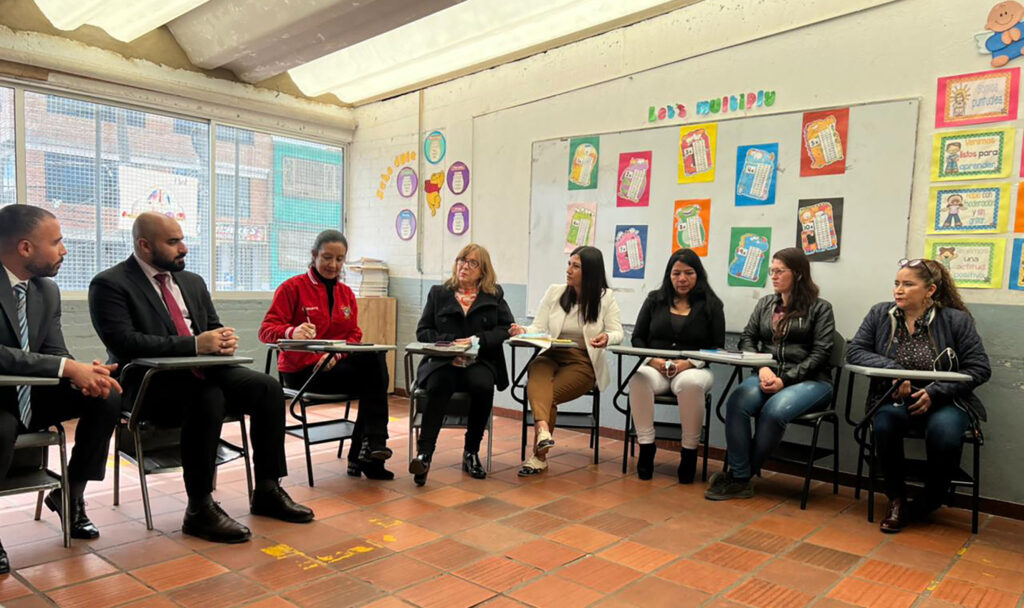
The Digital School, launched by His Highness Sheikh Mohammed bin Rashid Al Maktoum, Vice President, Prime Minister and Ruler of Dubai, in November 2020, is the first integrated digital school. It aims to empower students with digital learning options in remote and developing areas and regions where students do not have the appropriate conditions or the capabilities students need to pursue their education.
It also provides a qualitative option for blended learning and distance learning smartly and flexibly, allowing students to join regardless of their locations, primarily targeting the most vulnerable and less fortunate community groups, refugees, and displaced persons, through modern educational materials and curricula that benefit from technology and advanced technology applications.
WAM/Rola Alghoul/MOHD AAMIR
التقى فخامة إيفان دوكي ماركيز، رئيس جمهورية كولومبيا بوفد مبادرة المدرسة الرقمية، أحد مشروعات مؤسسة مبادرات محمد بن راشد آل مكتوم العالمية، ضمن مشاركة حكومة دولة الإمارات في فعاليات مؤتمر الاقتصاد البرتقالي الذي يعقد في مدينة ميديجين الكولومبية، ويهدف إلى دفع عجلة الاقتصاد الإبداعي من خلال الاعتماد على الثقافة والإبداع التكنولوجي.
وتم خلال اللقاء التعريف بمبادرات المؤسسة وجهود المدرسة الرقمية في توفير فرص التعلّم للطلبة في المناطق الأقل حظاً حول العالم، وسعيها لتعزيز منظومة التعليم في كولومبيا.
جاء ذلك خلال زيارة رسمية إلى جمهورية كولومبيا أعلنت “المدرسة الرقمية” خلالها عن افتتاح أول مركز تعلم رقمي في جمهورية كولومبيا بحضور سعادة سالم راشد العويس سفير الدولة لدى جمهورية كولومبيا ، حيث عقدت مجموعة من اللقاءات مع عدد من المسؤولين في كولومبيا ضمن زيارة رسمية للاطلاع على آلية تنفيذ برامج ومبادرات المدرسة الرقمية والنتائج التي تم تحقيقها خلال الفترة السابقة بما يسهم في دعم قطاع التعليم والتكنولوجيا وتطوير التعلّم الرقمي في كولومبيا.

وأكد معالي عمر بن سلطان العلماء وزير دولة للذكاء الاصطناعي والاقتصاد الرقمي وتطبيقات العمل عن بعد ، رئيس مجلس إدارة المدرسة الرقمية، أن دولة الإمارات تتبنى توظيف التكنولوجيا الحديثة والتقنيات الرقمية المتطورة، لتوفير المعرفة وأفضل فرص التعليم للطلاب من مختلف أنحاء العالم، خصوصاً في الدول الأقل حظاً للنهوض بالمجتمعات وتعزيز مسيرة التنمية العالمية.
وقال إن افتتاح أول مركز تعلم رقمي للمدرسة الرقمية في كولومبيا يعزز فرص الاستفادة من برامج ومشاريع المدرسة الرقمية التي توفر التعليم للطلاب في مختلف أنحاء العالم من خلال ممارسات مبتكرة وتقنيات ذكية ومرنة لتمكينهم وتعزيز جاهزيتهم للمستقبل ما يدعم جهود مواكبة التحول الرقمي في كولومبيا واستكشاف فرص جديدة تسهم في إحداث تغيير إيجابي في مختلف المجالات والقطاعات الحيوية لتحسين حياة الناس وبناء مستقبل أفضل للأجيال القادمة.
والتقى الدكتور وليد آل علي أمين عام وعضو مجلس إدارة المدرسة الرقمية، خلال الزيارة التي قام بها وفد المدرسة الرقمية إلى كولومبيا لمتابعة تنفيذ البرامج والمبادرات، وبحث سبل تعزيز التعاون في مختلف مجالات التعليم الرقمي في كولومبيا، كلا من معالي تيتو جريسين وزير العلوم والتكنولوجيا والابتكار في كولومبيا، وتم خلال اللقاء مناقشة سبل توفير مواد العلوم المتقدمة والابتكار للطلبة الكولومبيين عبر المدرسة الرقمية، كما التقى معالي أنجليكا مايولو وزيرة الثقافة بجمهورية كولومبيا وتم مناقشة مجالات التعاون في التعليم الرقمي، إضافة إلى سعادة ماريا ديل روساري افيديو، نائبة وزير الاتصالات وتكنولوجيا المعلومات لشؤون الاتصالات لمناقشة مجالات الوصول تعزيز الوصول للإنترنت في مراكز المدرسة الرقمية بكولمبيا.
كما عقد وفد المدرسة الرقمية اجتماعاً مع سعادة خوان كارلوس سالدرياغا عمدة بلدية سواتشا، بهدف بحث سير عمل المدرسة الرقمية ومجالات التوسع لمواقع جديدة، ولقاء آخر مع خوان بابلو وكيل وزارة الثقافة في بلدية ميديجين، كما التقى ميريل جيرار ممثلة المفوضية السامية للأمم المتحدة لشؤون اللاجئين في كولومبيا، حيث ساهمت هذه الاجتماعات في تعزيز الدعم المقدم للمدرسة الرقمية وخططها للمرحلة المقبلة في كولومبيا.

من جهته، قال الدكتور وليد آل علي إن بناء قدرات الطلاب والمعلمين الرقميين في كولومبيا من خلال توظيف حلول التكنولوجيا وخيارات التعلم الرقمي تشكل هدفاً للمدرسة الرقمية التي تسعى لتعزيز قدرات الفهم والبحث والتجربة والابتكار لدى الطلاب في مختلف أنحاء العالم، وتسريع الوصول إلى المناطق الأقل حظاً، بالاعتماد على أسلوب تعليمي مبتكر معزز بالتكنولوجيا والأدوات والتقنيات الرقمية الحديثة.
وأضاف أن المدرسة الرقمية بافتتاح أول مركز تعلم رقمي في كولومبيا تسهم في تقليل التحديات التي تعاني منها العائلات الكولومبية، ومواكبة الاقتصاد الرقمي والتعليم الرقمي، وتوفير دعم تربوي متكامل للطلاب والمعلمين من خلال تزويدهم بكفاءات القرن الـ21، واستقلالية التعلم وتمكينهم بالمهارات الرقمية المختلفة، بالتعاون مع فرق محلية وعالمية من الخبراء والمتخصصين في النظم التعليمية وتصميم الاستراتيجيات التربوية.
من جهته أشاد سعادة سالم راشد العويس بجهود المدرسة الرقمية، ومؤسسة مبادرات محمد بن راشد العالمية في إطلاق المشروعات العالمية الهادفة لتطوير المنظومة التعليمية وتسريع تحقيق أهداف التنمية المستدامة، مشيراً إلى أن المدرسة الرقمية تتبنى العديد من أنماط التعليم التي تعتمد على حاجة الدول المستفيدة، إضافة إلى أنها تقدم شهادات معترف بها من وزارة التعليم في الدولة المستهدفة وفقا للمعاير والمتطلبات المختلفة.
ويوفّر المركز الذي تم افتتاحه بحضور عدد من المسؤولين الحكوميين والمحليين وهم لويس أرماندو سوتو مدير إدارة الشؤون الثقافية في وزارة الخارجية، خوسيه ماريا ليتون وكيل وزارة التربية والتعليم في محافظة كونديناماركا، وجيفر مانويل سياتوبا باربوسا عمدة بلدية غواتشيتا، ورفائيل روزو مدير مدرسة مينيا ومدرسة تيتشا، للطلاب والمتعلمين أجهزة لوحية حديثة وشاشة عرض ووصول للانترنت، كما تم تجهيز قاعة متخصصة بأحدث التقنيات الذكية لمساعدة الطلاب على الاستفادة من خدمات المدرسة الرقمية.

وتمكنت المدرسة الرقمية منذ إعلان الشراكة مع كولومبيا من ضم 4000 طالب من 27 مدرسة عامة للاستفادة من خدمات المدرسة الرقمية، إضافة إلى تدريب 210 معلمين على كفاءات المعلم الرقمي ضمن البرنامج التدريبي الذي يتم تنفيذه بالتعاون مع جامعة ولاية أريزونا، وتركز هذه الكفاءات على تعزيز مهارات القرن الحادي والعشرين مثل استقلالية التعلم والمهارات الرقمية، واستراتيجيات تعزيز مهارات الرياضيات واللغة لدى الطلاب.
وسيحصل المعلمون باكتمال البرنامج التدريبي للمدرسة الرقمية على اعتماد في مجال التعليم الرقمي من خلال جامعة أريزونا /ASU/ ، وهي من أبرز الجامعات ريادة في إعداد المعلمين والتعلم الرقمي في حين يتم توفير الدعم التربوي مع فريق محلي من الخبراء في التعليم وتحسين الاستراتيجيات التربوية للمعلمين للقرن الحادي والعشرين بشكل مستمر، كما ستعمل المدرسة الرقمية على توسيع الشراكة للوصول لعدد اكبر من المستفيدين وتجهيز مراكز تعلم رقمي إضافية حيث تخطط المدرسة لضم 20000 طالب و800 معلم، بحلول عام 2023، بزيادة قدرها 5 مرات مقارنة بالسنة الأولى.
وتركز المدرسة الرقمية على دعم التحول الرقمي في التعليم في كولومبيا ومساعدة الطلاب لمواكبة التطور خصوصاً مع وجود تحديات كبيرة في المجالات التعليمية والرقمية ، فوفقاً لدائرة الإحصاء الوطنية فإن 38 % فقط من الأسرالكولومبية لديها جهاز كمبيوتر أو جهاز لوحي، منها 52% فقط تتوفر لديها إمكانية الاتصال بالانترنت في حين أن المعدل الوطني للوصول إلى التكنولوجيا في المدارس هو 8 طلاب لكل جهاز كمبيوتر، و 6 طلاب في “كونديناماركا”، و 8 طلاب في “إيتاجوي”، و 16 طالباً في “سواتشا”، في حين أن 37% من الطلاب فقط لديهم إمكانية الاتصال بالإنترنت، و55.5% فقط من الطلاب الكولومبيين لديهم مدرسين يتمتعون بمهارات فنية وتربوية لاستخدام التكنولوجيا في الفصول الدراسية.
الجدير بالذكر أن “المدرسة الرقمية”، التي أطلقها صاحب السمو الشيخ محمد بن راشد آل مكتوم نائب رئيس الدولة رئيس مجلس الوزراء حاكم دبي “رعاه الله” في نوفمبر 2020، تعتبر أول مدرسة رقمية متكاملة من نوعها، وتهدف إلى تمكين الطلاب بخيارات التعلم الرقمي في المناطق النائية والنامية والأقاليم التي لا تتوفر فيها الظروف الملائمة أو المقومات التي يحتاجها الطلاب لمتابعة تعليمهم، كما توفر خياراً نوعياً للتعلم المدمج و التعلم عن بُعد، بطريقة ذكية ومرنة، بحيث يستطيع الطلاب الانضمام إليها أينما كانوا، مستهدفة بالدرجة الأولى الفئات المجتمعية الأكثر هشاشة والأقل حظا واللاجئين والنازحين، عبر مواد ومناهج تعليمية عصرية تستفيد من التكنولوجيا وتطبيقات التقنيات المتقدمة.



